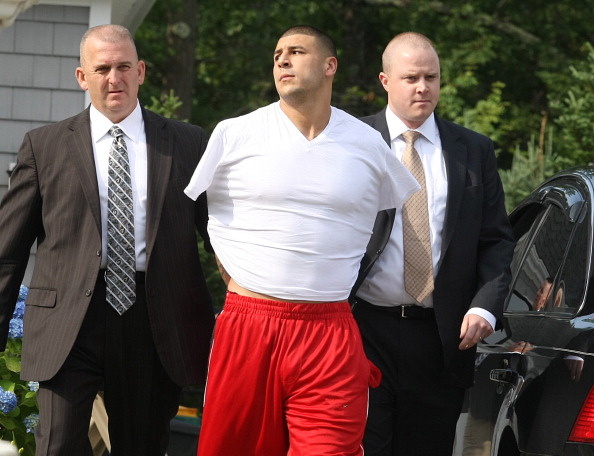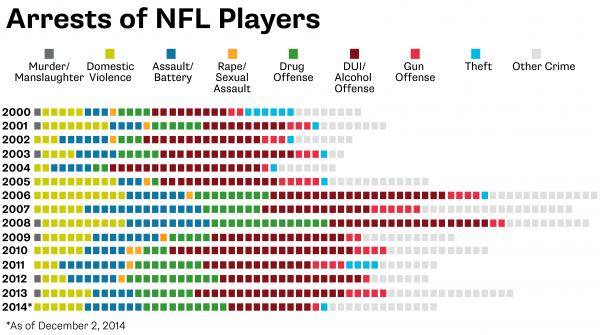
Teams do whatever they can to try and find out everything and anything about future draft picks. Not just their on-field abilities but their character, off-the-field behavior and try to determine whether this and that guy is worth the trouble of a draft pick, a guaranteed contract and the time invested in coaching him. Maybe the highly criticized Wonderlic test can actually help?
A group of college professors and researchers published a paper on off-duty deviance in professional settings which was published this month in the Journal of Applied Psychology. The research was based on two NFL draft-related results: Between 2001 and 2012, players with publicly-documented pre-draft arrests were nearly twice as likely to be arrested after reaching the NFL than those who had not been arrested. And that there was a small but evident correlation between arrests and Wonderlic tests scores; players who scoring below the mean in the researchers’ sample were about twice as likely to be arrested in the NFL compared to those scoring above it.

The Wonderlic test is a popular group intelligence test used to assess the aptitude of prospective employees for learning and problem-solving in a range of occupations. There has been ongoing debate about its usefulness in predicting success for future NFL players, and according to many, scoring too high on the test is just as bad as scoring too low. Author Brian Hoffman, an associate professor and chair of the industrial-organizational program at the University of Georgia thinks there’s something in this research, but the numbers don’t offer a conclusive way of determining how likely a player is to get arrested or not.
The effects are relatively small. But it’s important here because when making multimillion-dollar decisions, a small effect can be very meaningful. A player’s getting a four-game suspension can be a big deal, competitively and financially. If I were a decision-maker, I wouldn’t view getting into trouble as a zero-sum game. You check off that they’ve been in trouble and know what that has meant for others on a percentage basis. And then there’s a factor that would make the likelihood a little worse: If they score lower on the Wonderlic. Really, that tells you there’s even more work to do there.
Wonderlic results remain confidential in most cases, but the researchers were able to obtain scores from the 2002 and 2003 drafts after they were posted on a public website. For that period, they found a mean grade of 21.7 on a scale of 1 to 50. Around 18% of players who scored below the mean were arrested in the NFL while only 9.5% of those scoring above it were arrested.
According to Hoffman, this is pretty much the norm in other industries that have nothing to do with the NFL. This isn’t just a football player issue, but possibly a way to predict how likely are future employees are to get in trouble.
More generally, we find a relationship outside the NFL between intelligence and arrests as well. Intelligence is associated with impulsivity and foresight to extrapolate the implications. Those who have more intelligence have more self-control, are more cognizant of the consequence of actions and more likely to abstain. I’m not sure that’s what is going with NFL players, but many of the crimes we see are crimes of impulse rather than premeditation — you get mad and punch someone. In that context, this has some relevance.
